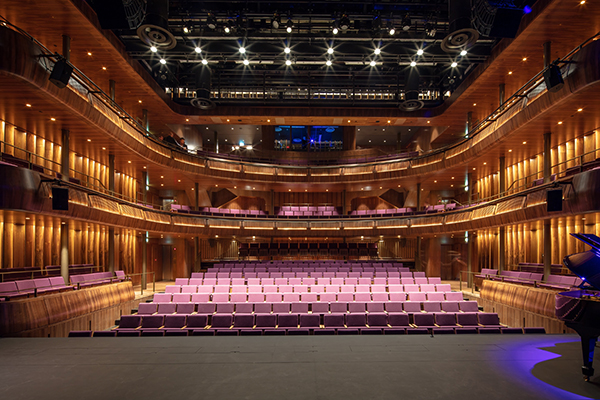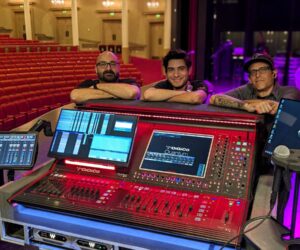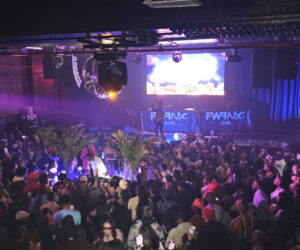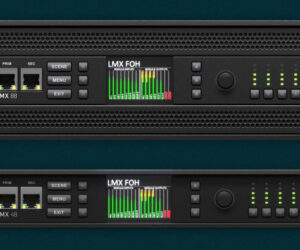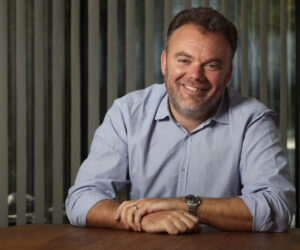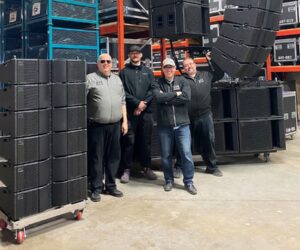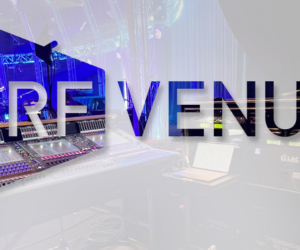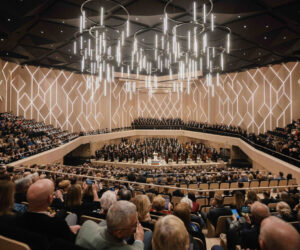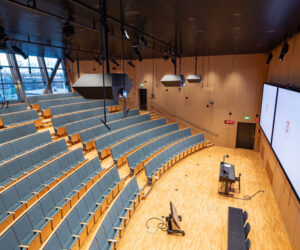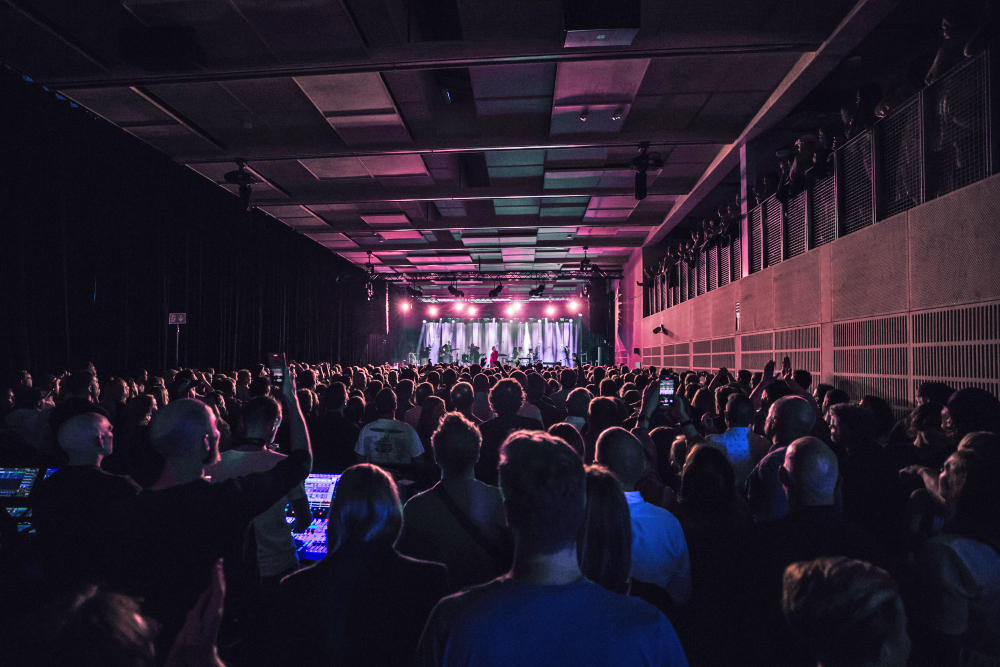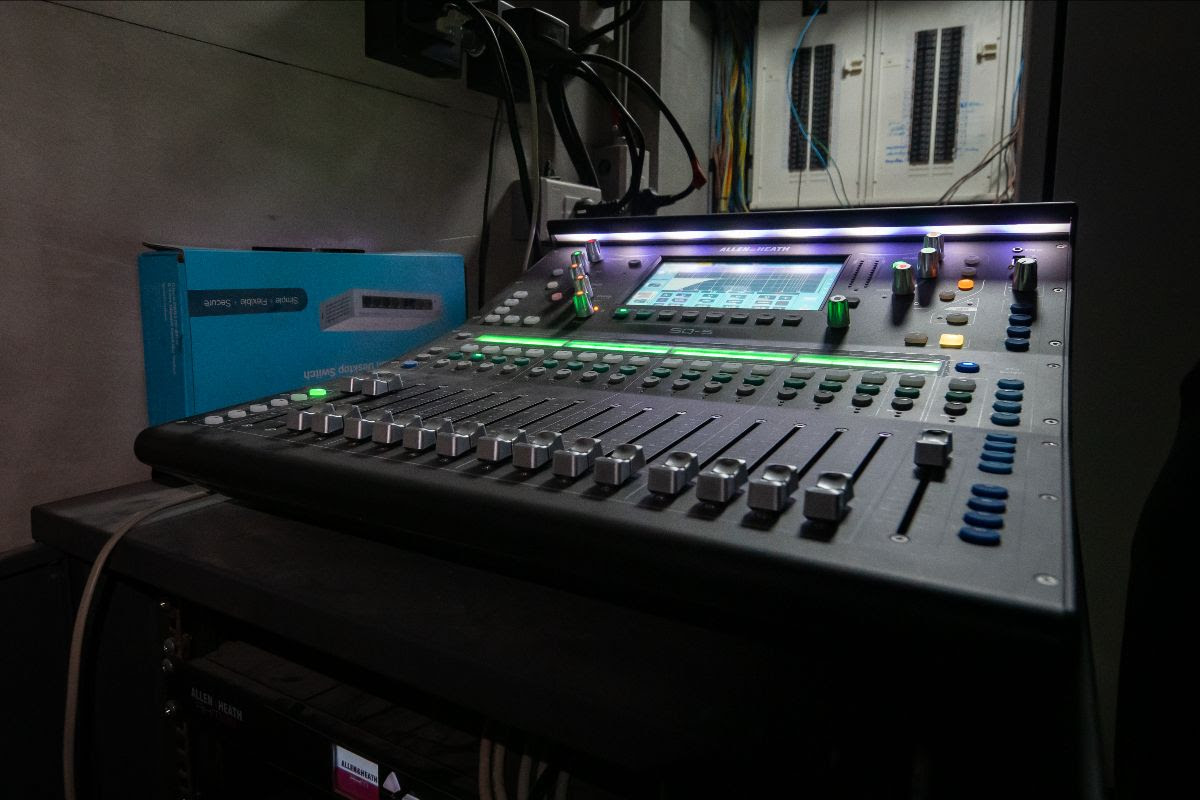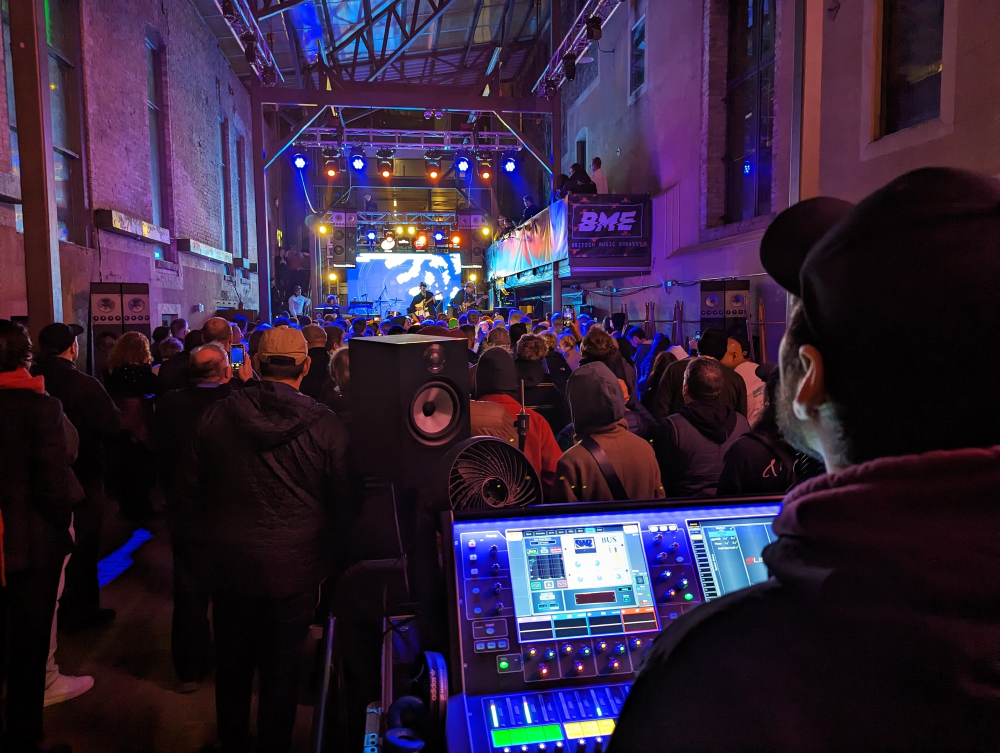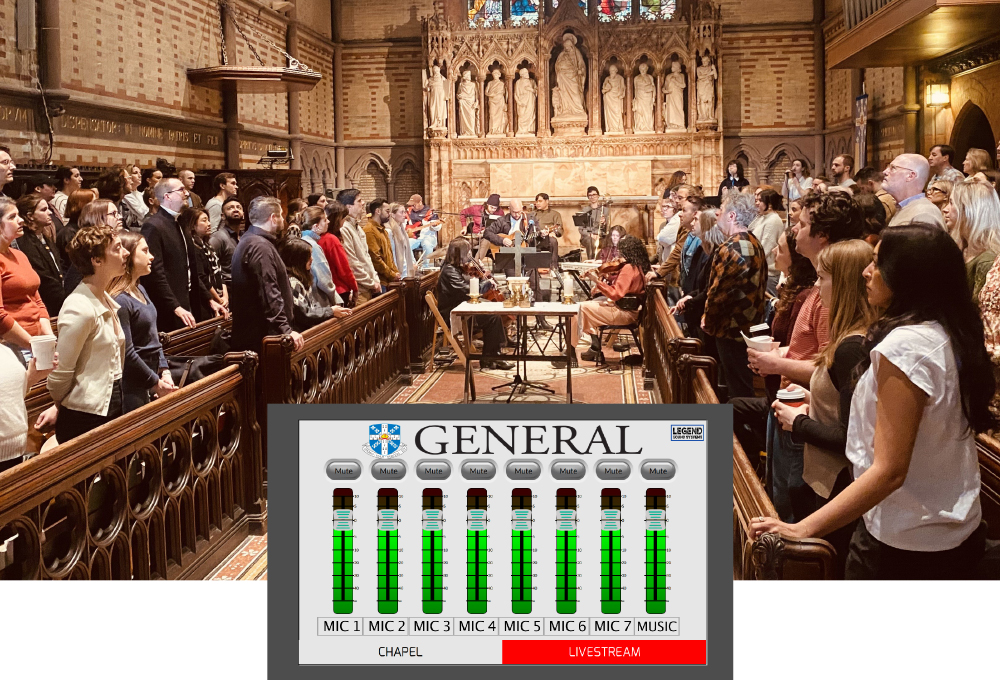The Royal Opera House in Covent Garden (London), regarded as one of the world’s leading opera houses, recently underwent a significant refurbishment that includes Audinate Dante media networking technology in place of the previously analog-reliant audio.
Built in 1858, the Royal Opera House is home to The Royal Ballet and the Royal Opera, as well the Linbury Theatre and various restaurants and a gift shop. The refurbishment project, entitled “Open Up,” is a £62m effort to create a welcoming visitor-friendly experience, improve crowd flow, welcome daytime activity of events for all ages relating to the art of dance and music, along with renovating the Linbury Theatre into a world-class venue for performances of ballet and opera.
Martin Adams, technical manager of the Open Up Project, Royal Opera House, and Tom Thompson, technical manager of the Linbury Theatre, were tasked with creating an audio network to meet the theater’s current and future needs. Adams and Thompson selected the Dante media networking technology as a major part of the renovation.
Prior to the refurbishment, the Linbury Theatre relied on an analog infrastructure based on 1990s standards for audio distribution – there was no network infrastructure in place. Because of its analog infrastructure, the theater was restricted by the system’s limited expandability and long, expensive analog cable runs.
“We realized Dante would be the right technology for us when we saw how many manufacturers in the industry were using Dante for their own solutions,” says Adams. “Hundreds of manufacturers offer Dante-enabled products, and if the manufacturers are embracing it, we understood clearly that the market was embracing it.”
Thompson adds, “With this project, we needed to plan ahead for two, three or four years from now,” said Thompson. “We decided quickly that audio over IP was the right way to go from an installation and usability perspective, and that the Dante solution would be easy for us to work with, even though we’re coming from an analog background with really no experience in AoIP or networking.”
With the new network infrastructure in place, the theater team could more quickly integrate any of the more than 1,600 available Dante-enabled products from more than 400 manufacturers into the network. Current Dante-enabled equipment in the theater includes devices from Solid State Logic, Luminex and Shure, among others.
When installing the system, Adams and Thompson utilized Dante Controller, the free software application that enables users to route audio and configure devices on a Dante network. Downloadable on PC or Mac, Controller helped ensure the setup and use of the Dante network was efficient.
“Our implementation of Dante actually was as simple as turning the first device on,” Adams notes. “After powering up and opening Dante Controller, everything on the network was just there. We plugged it in and turned it on, it was as simple as that.”
In addition, Dante has helped improve the theater’s audio infrastructure by eliminating the need for long analog cables that were causing ground hum and noise. The Linbury Theatre was able to decrease the number of cables used because, with Dante, all data transport is done by standard Cat-5/Cat6 Ethernet cables. By integrating standard Ethernet cables, the theater also sees cost savings relative to the previous cabling.
Dante Controller software gives operators an overview of the system, providing more control of the theater’s audio. Adams and Thompson can now look at all aspects of the signal chain and understand everything what is happening with it.
“With a Dante system, you have direct control, and you know where any fault is straightaway,” says Adams. “So, if there is a device on your network experiencing a problem, Dante Controller will alert you. IP systems help us find problems a lot quicker than an analog environment.”
Since the Linbury Theatre is part of the Royal Opera House, the theater generates a lot of its own work for The Royal Ballet and the Royal Opera with different composers. Whether recording, streaming or doing live replays of compositions, working with composers means the theater must be ready, with Dante and Dante Virtual Soundcard (DVS) introducing the theater to scalability as well as flexibility by allowing composers to integrate different equipment or personal computers into the system.
“Composers don’t like having restrictions put upon them, and with Dante, we can expand and contract the system as needed,” Adams explains. “We can now take a composer’s PC and plug it straight into the system, and by using DVS, we can add that person’s work into the system very, very simply and very, very quickly — we never had that kind of flexibility in the past.”
The Linbury Theatre intends to continue to scale up its use of Dante audio network technologies. Currently, all audio equipment is Dante-enabled, and Adams and Thompson look to make sure all future equipment is Dante-enabled for simple integration. Additionally, the team is now looking to deploy more control features and to enhance network security with Dante Domain Manager.
“Dante gives us more flexibility and usability than we have ever had before,” Adams concludes. “And using Dante means that we are future-proofing ourselves by knowing that we can expand on any number of channels in the future and control audio in any manner we need.”


